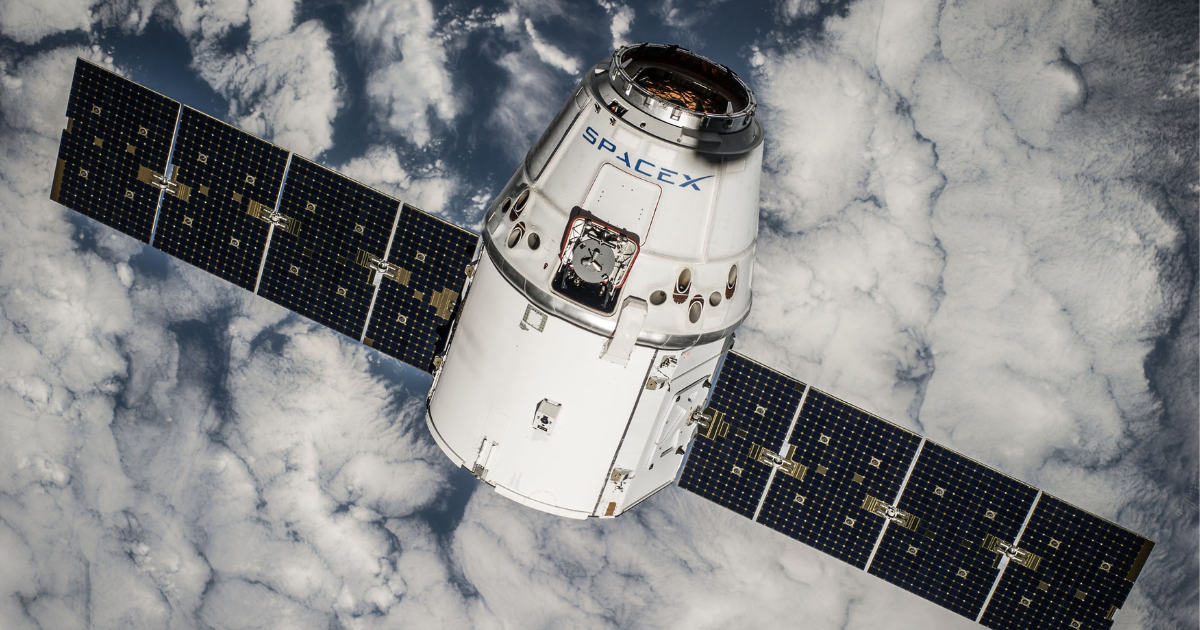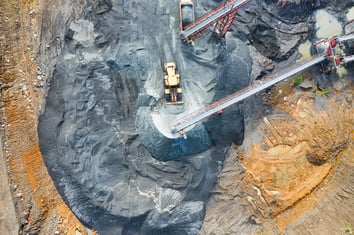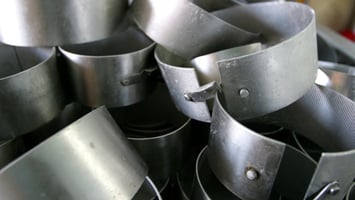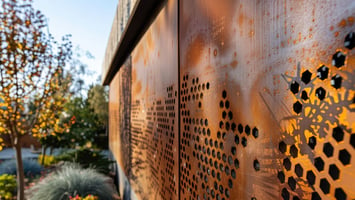Stainless steel is a widely used material in various industries, valued for its remarkable...
Kryton Metals Blog
Which Abrasion-Resistant Steel Is Right for You? AR Steel Types, Benefits, and Uses

Imagine a type of material so tough that it withstands the relentless pounding of rocks, heavy machinery, and the constant friction without breaking a sweat. That’s the power of abrasion-resistant steel—where extreme durability meets innovation, transforming how industries handle wear and tear.
Abrasion-resistant steel (AR steel) is a type of carbon alloy steel specifically designed to withstand wear and tear, making it a vital material in industries where durability and longevity are needed.
Unlike ordinary steel, AR steel is treated and hardened through special processes to improve its resistance to impact and abrasion. This property makes it ideal for heavy-duty applications where traditional steel would wear out quickly. Let's dive into what abrasion-resistant steel really is, what it offers, and why it could be the right choice for your next project.
WHAT IS ABRASION-RESISTANT STEEL?
Abrasion-resistant steel is specifically formulated to be tougher than standard carbon steel, offering a longer lifespan and reducing the need for frequent replacements or maintenance. The key to its strength is its high carbon content, which makes the steel more robust against scratches, gouges, and other forms of surface damage.
Manufacturers enhance its durability further through quenching and tempering processes. The result is a type of steel that offers exceptional hardness, typically measured in Brinell Hardness Numbers (BHN), ranging from 200 to 600+ BHN depending on the grade. In comparison, mild steel can range from 95-125 BHN where aluminum is usually around 15 BHN.
WHAT IS ABRASION-RESISTANT STEEL?
- High Wear Resistance: The main advantage of AR steel is its ability to withstand significant wear and tear, which is why it’s often used in environments that involve constant friction, such as in mining or construction.
- Cost Efficiency: Although the initial cost of AR steel can be higher when compared to regular steel, its durability reduces replacement costs, downtime, and labor associated with frequent repairs, making it a more economical choice in the long run.
- Versatility: AR steel can be fabricated into various shapes and forms, including sheets, bars, and tubes, to suit different applications. Its flexibility makes it a popular choice across multiple industries.
WHERE IS ABRASION-RESISTANT STEEL USED?
Abrasion-resistant steel is widely used in industries that demand materials with extreme toughness and longevity. Some common applications are:
- Mining Equipment: Components such as crushers, hoppers, chutes, and conveyors are frequently made of AR steel to handle the continuous impact of hard rocks.
- Construction Machinery: Bulldozers, excavators, and dump trucks benefit from AR steel's ability to withstand abrasive conditions.
- Agricultural Equipment: Plows, tillers, and harrows use abrasion-resistant steel to endure contact with rocks, soil, and other challenging conditions.
- Industrial Liners and Wear Parts: Used in manufacturing plants, power plants, and recycling facilities, where materials must be able to handle repeated abrasion.
- Military and Tactical Units: Used in steel targets, as AR steel is more resistant to wear-and-tear from high-velocity bullets—also used in armored vehicles as a protective barrier against most weaponry.
TYPES OF ABRASION-RESISTANT STEEL
Varying levels of carbon create different grades of abrasion resistance, and involving other alloys (like chromium, for example) can help reduce the typical brittleness of abrasion-resistant steel.
There are several grades and types of AR steel, each offering different levels of hardness and toughness:
- AR200: A low-cost, medium-carbon steel (nominal hardness of 200 BHN) that provides moderate abrasion resistance, making it suitable for where some wear resistance is needed but extreme durability isn’t required.
- AR400: Known for its balance of hardness (around 360-444 BHN) and formability, AR400 is a versatile choice for applications needing a combination of wear resistance and structural integrity—offers excellent weldability.
- AR450: This type has slightly higher hardness, around 420-470 BHN, making it more durable for more severe abrasion environments, such as mining or heavy construction.
- AR500: Offering a hardness level of around 477-534 BHN, AR500 is perfect for high-impact applications. It's often used in military and ballistic applications for its superior impact resistance.
- AR600: The toughest of the lot, AR600 has a hardness of up to 640 BHN, making it highly specialized for extremely abrasive environments, although its brittleness can be a limitation in some cases.
Another type of AR steel is Hadfield steel (also known as manganese steel or Mangalloy)—it’s a lesser known but highly effective abrasion-resistant steel. Hadfield steel is composed of high manganese content, offering high impact resistance, especially in situations with extreme wear and tear.
DID YOU KNOW? AR steel's performance depends on more than just hardness—it also relies on its microstructure. The way abrasion-resistant steel is heat-treated can greatly impact how it performs in different situations. For example, AR steels that are quenched and tempered offer great toughness while maintaining ductility, making them ideal for applications where a bit of flexibility is needed.
CHOOSING THE RIGHT AR STEEL FOR YOUR PROJECT
Selecting the right type of abrasion-resistant steel depends on several factors, including the level of impact, the type of abrasive material, and the desired lifespan of the piece. AR400 and AR450 are generally good choices for applications needing a balance between wear resistance and workability. On the other hand, AR500 and AR600 are ideal for more specialized applications demanding maximum hardness and durability.
READY TO LEARN MORE?
Understanding the different properties of abrasion-resistant steel can significantly affect your project. At KRYTON, we specialize in custom metal fabrication that meets your exact needs. If you're looking to increase durability and performance in your application, contact us today to discover how we can help you choose the right abrasion-resistant steel!




